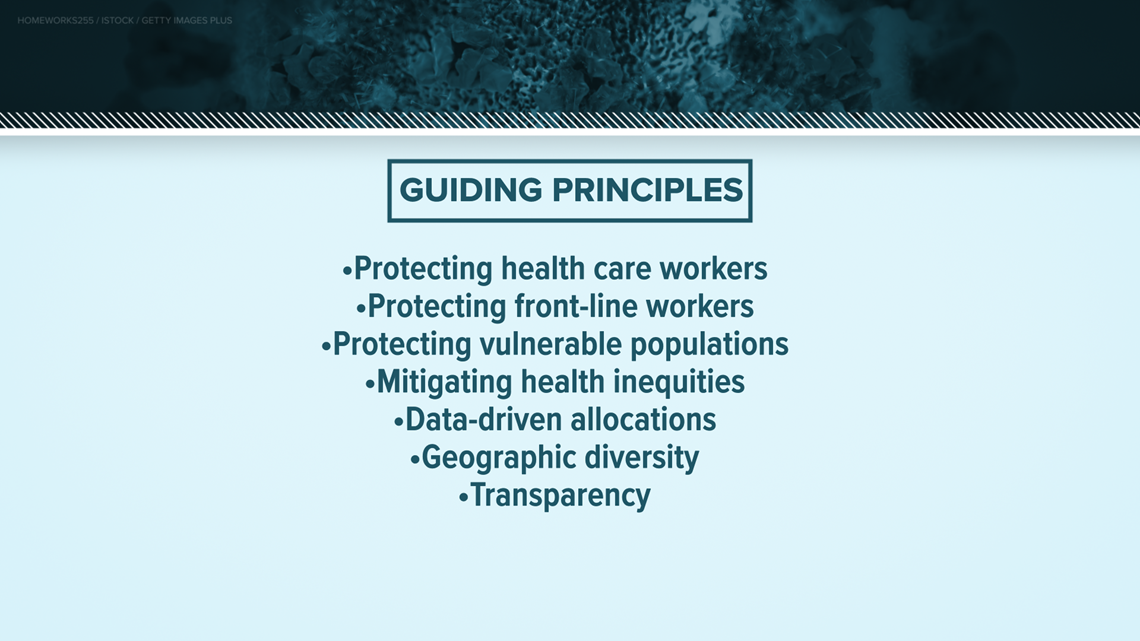AUSTIN, Texas — On Friday night, the FDA granted Emergency Use Authorization to the Pfizer COVID-19 vaccine.
Texas will receive more than 200,000 doses of the vaccine within weeks. These first doses will go to frontline workers who come in contact with the virus the most, along with health care workers.
In November, Texas created its own COVID-19 Expert Vaccine Allocation Panel. Seventeen people, mostly in the health care industry in some way, meet multiple times a week to determine who will get the vaccine when. This panel makes their recommendations to the state's Health Commissioner, Dr. Jon Hellerstadt.
"We have been having discussions from very broad concepts all the way to very specifics about how many counties, how many facilities these vaccines should go to," Dr. Jennifer Shuford, a member of the panel and the chief state epidemiologist for Department of State Health Services, said.
Shuford said discussions are just starting now regarding who will receive vaccines after the initial rollout. The Guiding Principles created by the panel earlier this month give an idea of how the group will make recommendations to Hellerstadt.


"This event is different in many ways from our response to H1N1," Dr. David Lakey, another member of the panel, said.
Lakey was Health Commissioner during the swine flu pandemic in 2009.
"It was different in that the vaccine was another flu vaccine," Lakey said. "That was the same technology using the egg base and other cells that we've used to make flu vaccine ... This vaccine is new. The technology is different. It has to be kept ultra-cool and have multiple doses."
Shuford believes as vaccine supply starts to run low after the initial distribution, there will be hard discussions to figure out who comes next.
"As we get further along, it is going to be more difficult," Shuford said. "We're having to get used to getting new information about not only the vaccines, the safety, the efficacy, but also the supply. So, we are going to have to continue to quickly make decisions based on new information coming to us about the product itself, as well as that supply chain, which for some other things have been really inconsistent."
PEOPLE ARE ALSO READING:

